The Basics of Food Processing: Typically Tropical
The tropics, with their abundant sunshine and rainfall, are home to a vast array of unique and nutritious fruits, vegetables, and other agricultural products. However, the journey from farm to table can be challenging, often leading to significant post-harvest losses. This is where tropical food processing plays a crucial role, transforming raw materials into valuable, shelf-stable, and appealing food products.
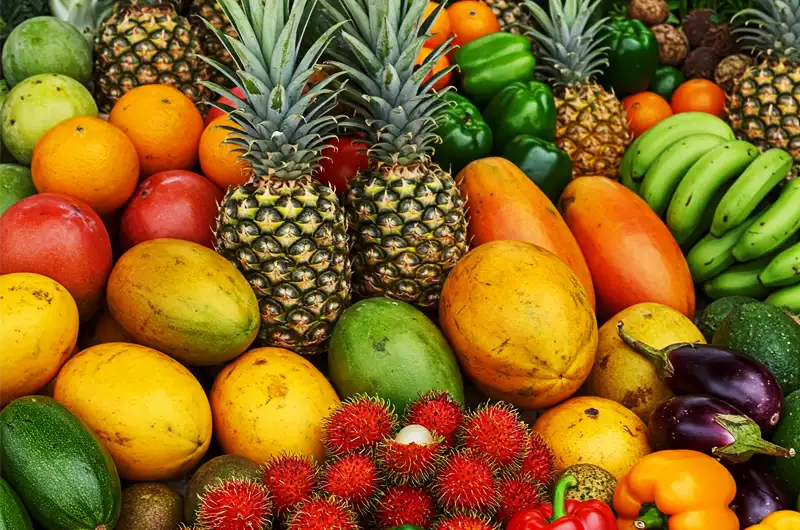
What is Food Processing?
At its core, food processing encompasses the various methods and techniques used to convert raw agricultural produce originating from tropical regions into processed food items. This can range from simple techniques like drying and salting to more complex industrial processes like canning, freezing, and fermentation. The goal is to enhance the value, extend the shelf life, improve the safety, and diversify the applications of these tropical commodities.
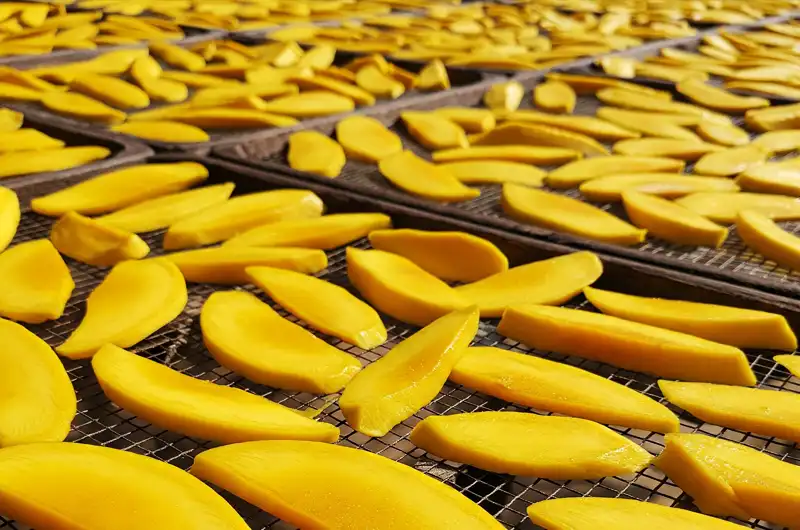
Why is Food Processing Important?
The importance of food processing provides numerous benefits, including:
- Reducing Food Waste: Tropical climates often lead to rapid spoilage of fresh produce. Therefore, processing allows for preservation during peak seasons, minimizing post-harvest losses and ensuring food security.
- Adding Value to Agricultural Products: By transforming raw materials into processed goods, farmers and businesses can command higher prices, boosting local economies and improving livelihoods. This creates value-added tropical products.
- Diversifying Food Supply: Processing enables the creation of a wider variety of food products, catering to diverse consumer preferences and nutritional needs.
- Creating Employment Opportunities: The tropical food processing industry generates numerous jobs in rural and urban areas, contributing to economic growth and social development.
- Enhancing Food Safety: Proper processing techniques can eliminate harmful microorganisms and extend the shelf life, ensuring safer food for consumers.
- Facilitating Trade and Export: Processed tropical foods can be transported and stored more easily, opening up opportunities for domestic and international trade.
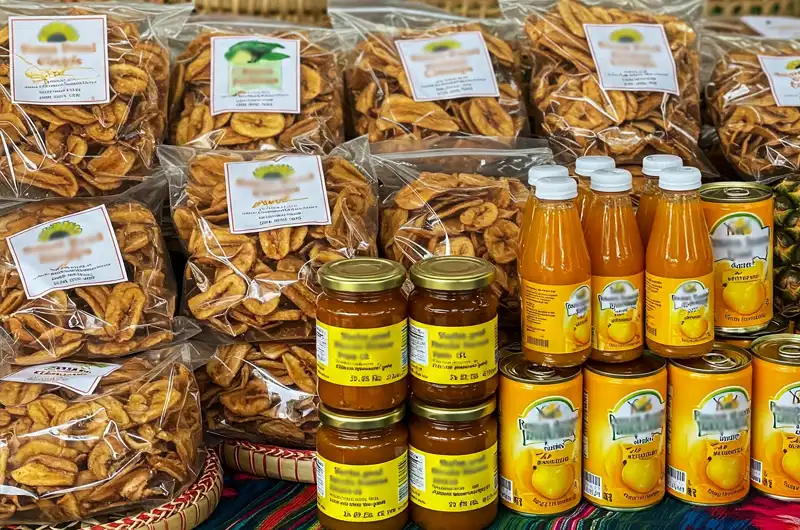
Common Food Processing Techniques:
The methods used in processing fruits and vegetables are varied. Some common techniques include:
- Drying: This method is commonly used for fruits such as mangoes, pineapples, bananas, as well as vegetables and spices.
- Freezing: An effective method for preserving the quality and nutritional value of fruits, vegetables, and seafood.
- Canning and Bottling: Suitable for preserving fruits, vegetables, juices, and sauces for extended periods.
- Fermentation: Utilized to produce products like pickles, fermented beverages, and traditional sauces.
- Juice Extraction and Concentration: Processing fruits like oranges, mangoes, and passion fruit into juices and concentrates.
- Milling and Grinding: Used for processing grains like rice and corn, as well as spices and nuts.
- Oil Extraction: From oil-rich crops like coconuts, palm nuts, and peanuts.
- Confectionery and Baking: Creating sweets, snacks, and baked goods using tropical ingredients like coconut, cassava, and sweet potato.
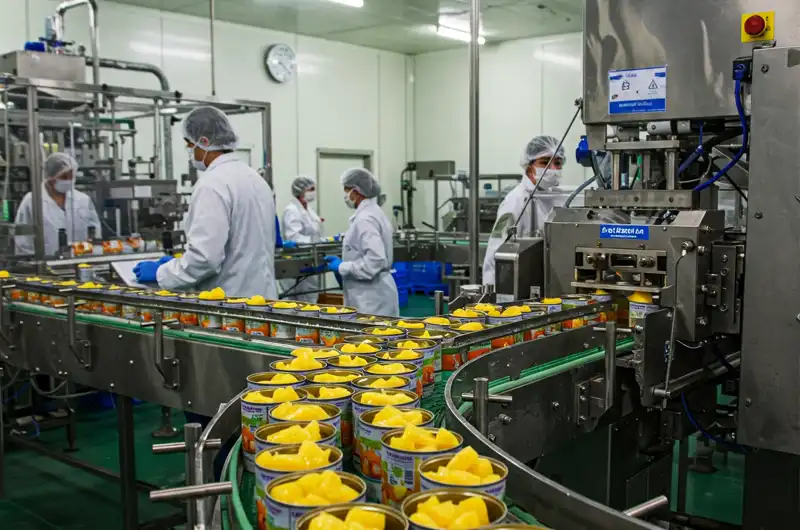
Challenges:
Processing tropical agricultural products into stable industrial products generally depends on many factors such as:
- Seasonality of Raw Materials: The availability of many tropical crops is seasonal, leading to fluctuations in supply and prices.
- Limited Infrastructure: In many tropical regions, infrastructure such as reliable electricity, transportation networks, and cold storage facilities can be inadequate.
- Technological Limitations: In addition to infrastructure requirements, access to modern processing technology and equipment can be a barrier for small-scale processors.
- Quality Control and Food Safety Standards: Maintaining consistent quality and compliance with international food safety standards is a major challenge for this demanding sector.
- Lack of Skilled Labor: Having trained personnel in food processing and quality control is a very important factor. Moreover, it also depends on the awareness and ethics of each individual.
- Competition: The industry faces competition from both domestic and international players.
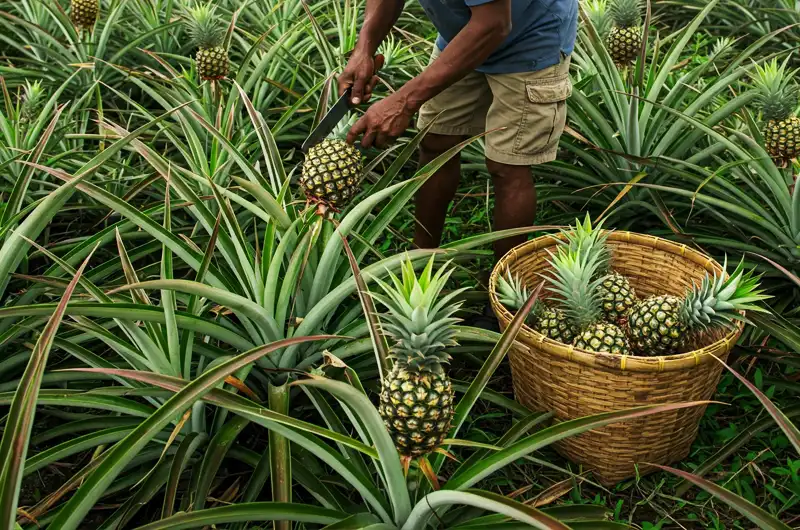
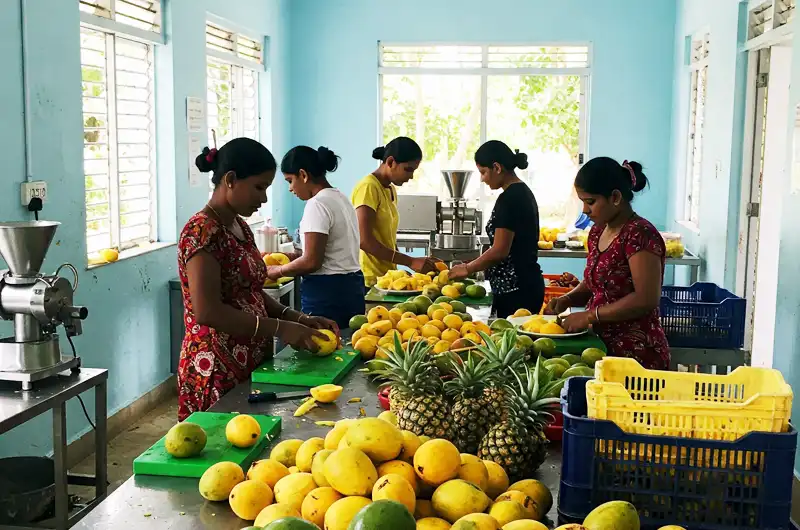
Opportunities:
Along with the challenges, there are also opportunities and potential for the development of processed agricultural products as follows:
- Growing Global Demand: Demand for tropical food products is increasing.
- Focus on Health and Wellness: Consumers are increasingly seeking healthy and natural food options, which many tropical fruits and vegetables can offer.
- Rise of E-commerce: Online platforms provide new avenues for marketing and selling processed tropical foods.
- Government Support and Investment: Many governments in tropical regions are recognizing the importance of food processing and are implementing supportive policies and investments.
- Innovation in Processing Technologies: Advancements in food processing technologies are creating new possibilities for product development and efficiency.
- Sustainable Processing Practices: There is a growing emphasis on adopting sustainable and environmentally friendly processing methods.
Examples of Successful:
Numerous examples showcase the success of tropical food processing around the world. These include:
- Vietnam: Leading exporter of processed cashew nuts, coffee, and dried fruits.
- Thailand: Renowned for its canned fruits, coconut milk products, and ready-to-eat meals.
- Philippines: Major producer of dried mangoes, banana chips, and coconut oil.
- Brazil: A global leader in processed fruit juices, coffee, and cassava products.
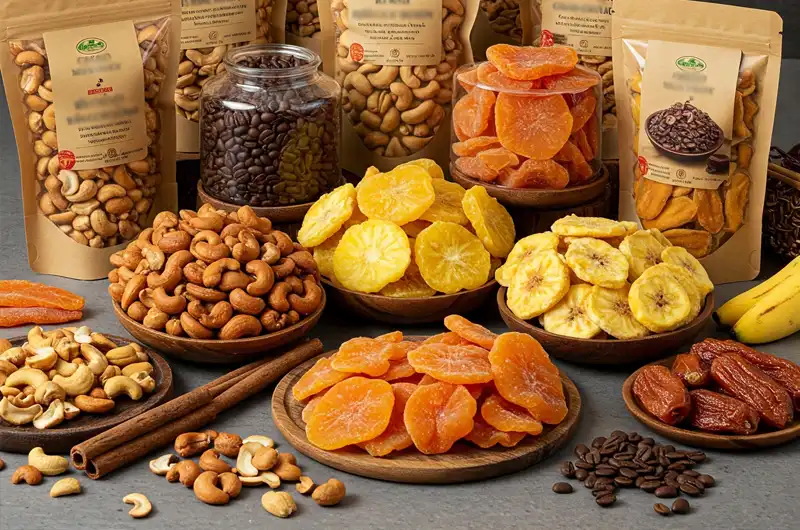
Food processing is a vital sector with the potential to transform economies, reduce food waste, and provide consumers with a diverse range of nutritious and delicious products. By addressing the existing challenges and capitalizing on the numerous opportunities, the food processing industry in the tropics can unlock its full potential and contribute significantly to sustainable development and global food security.
Latest Posts:


